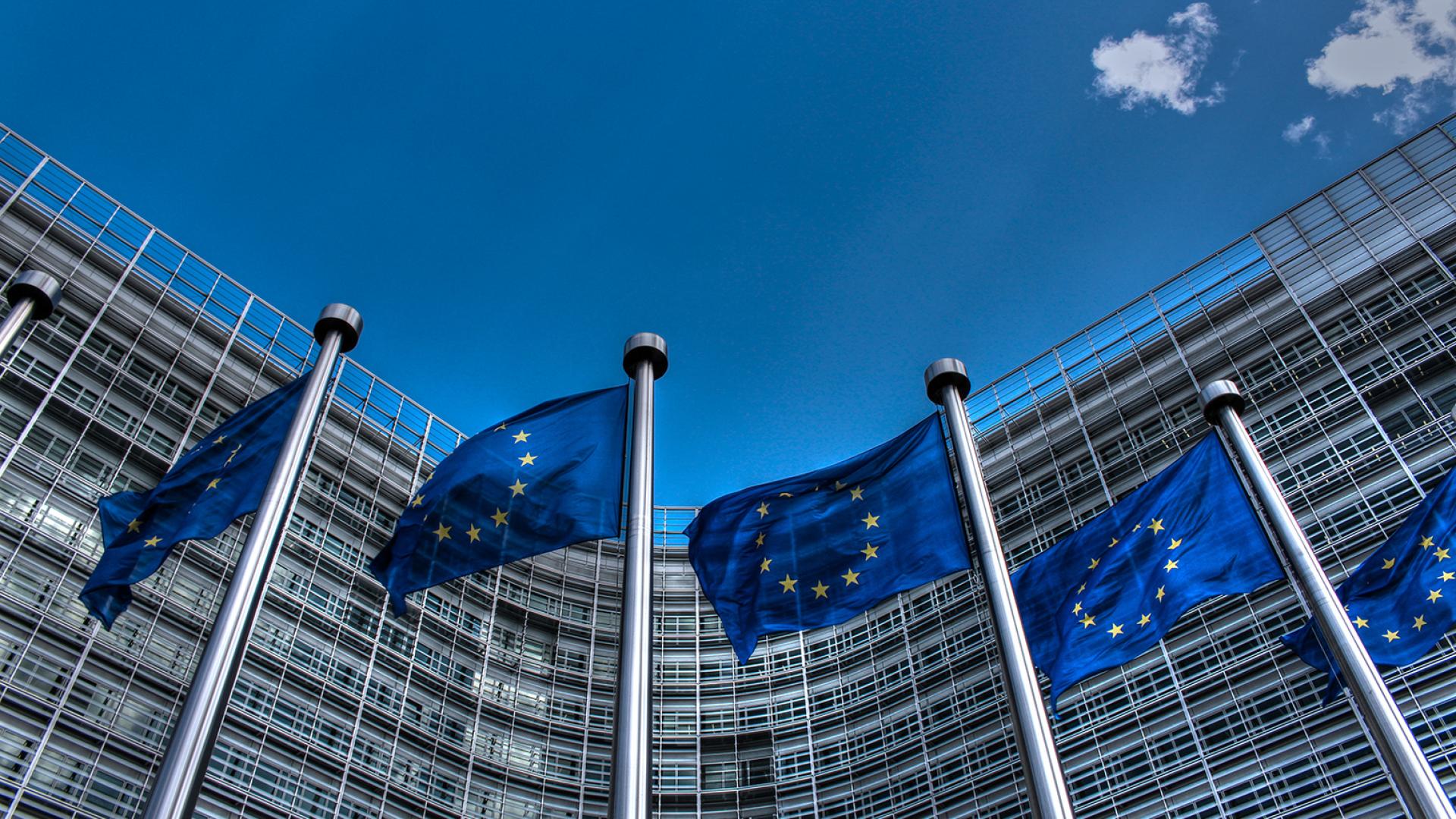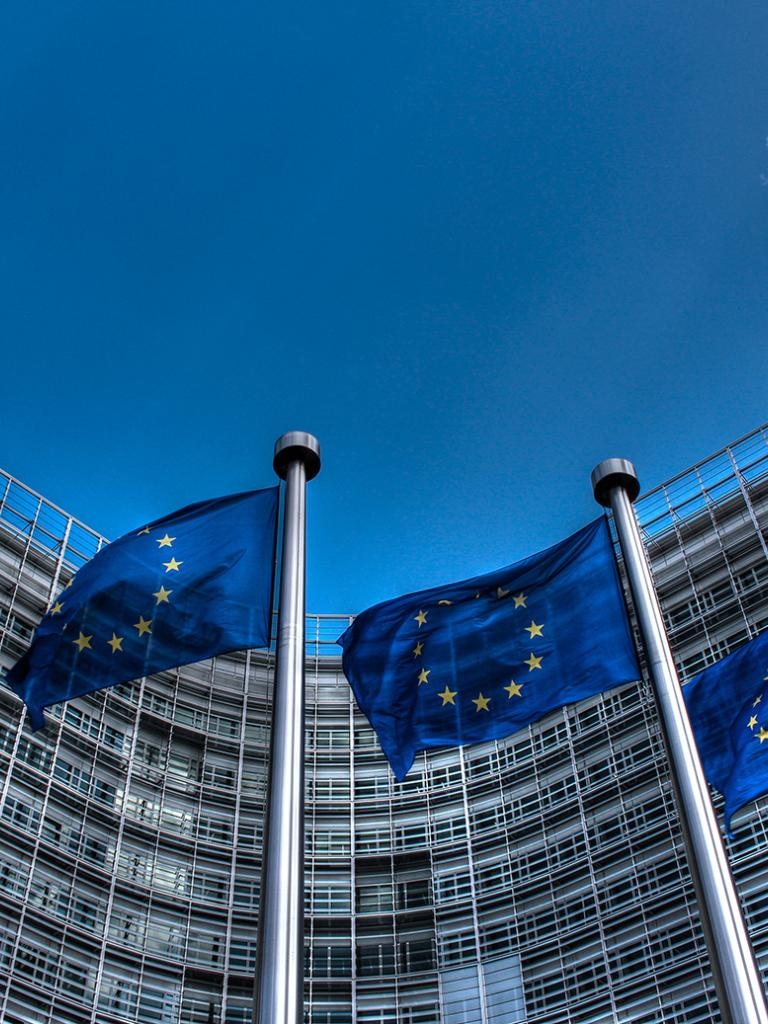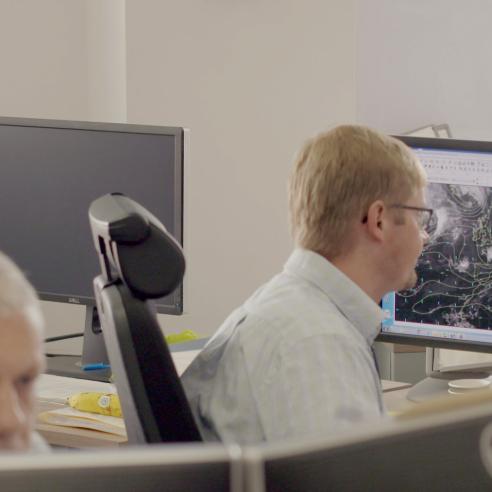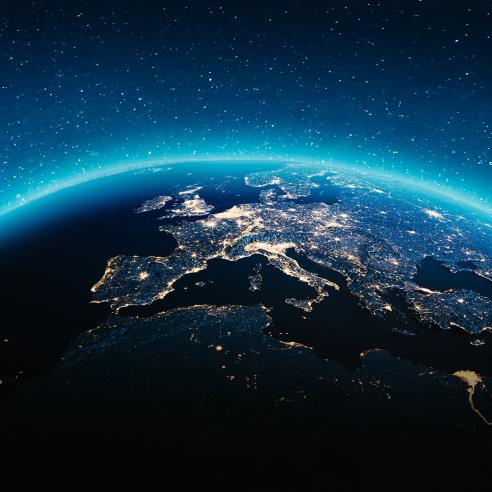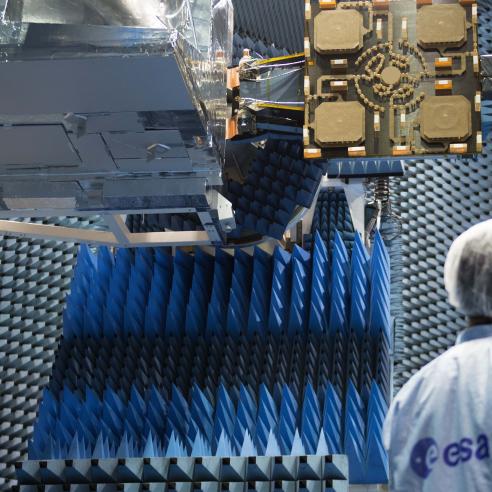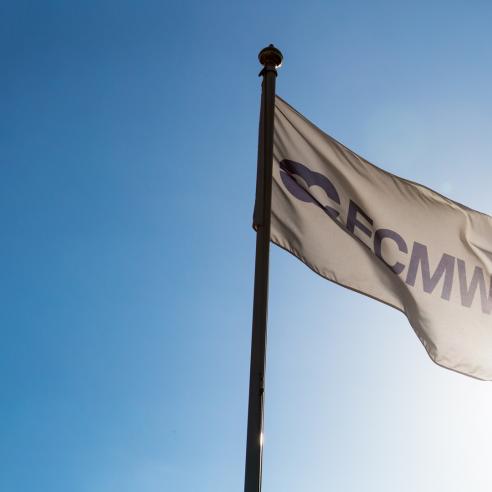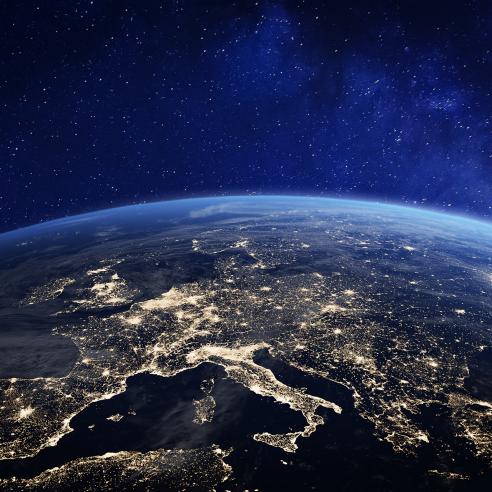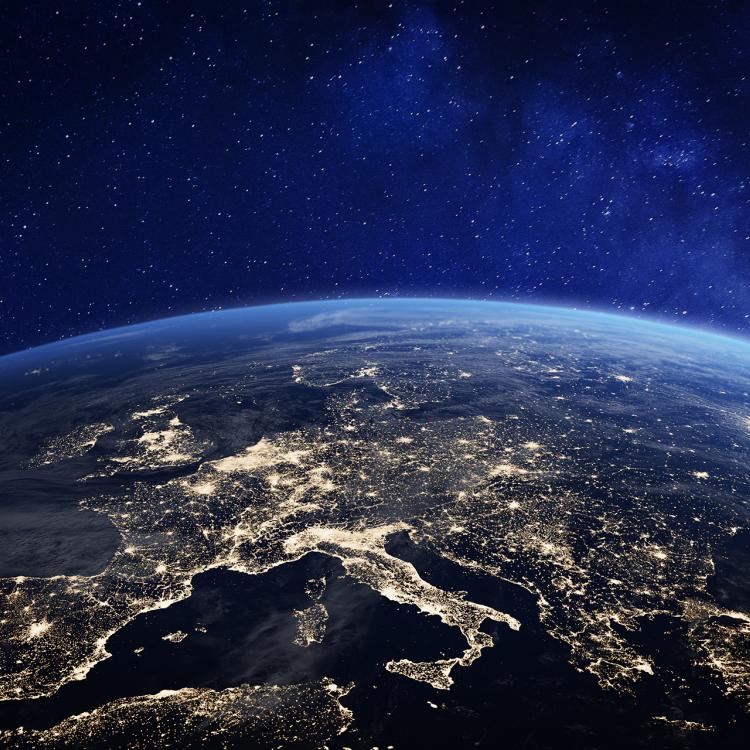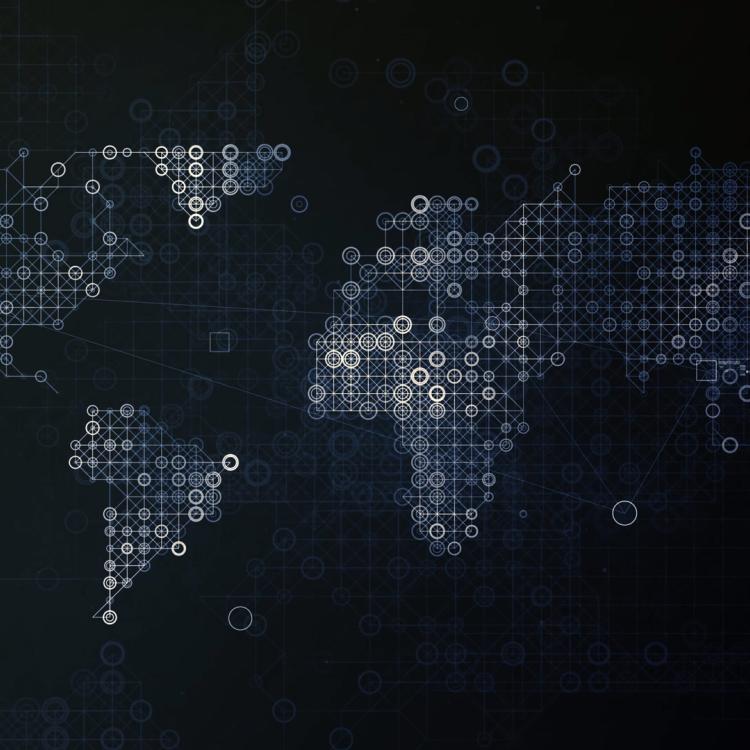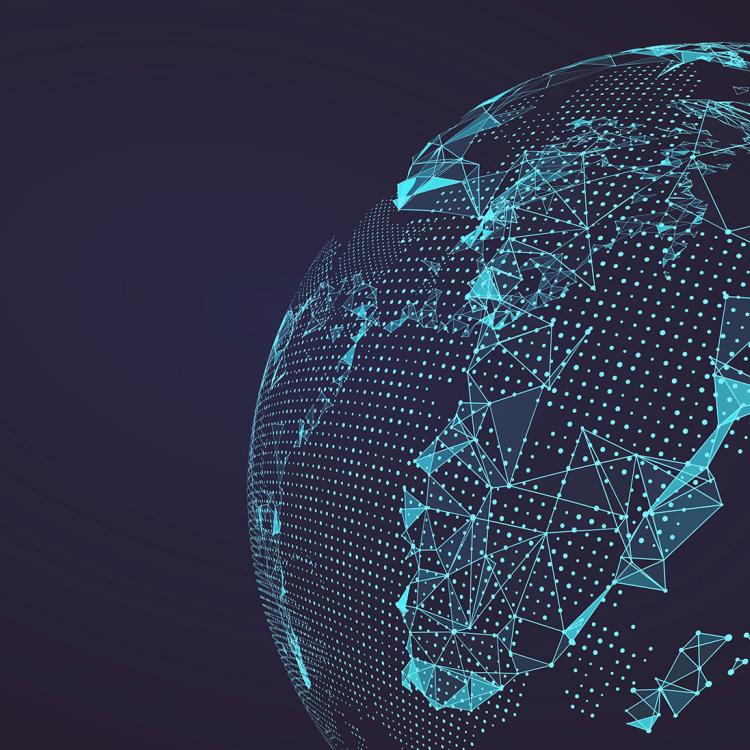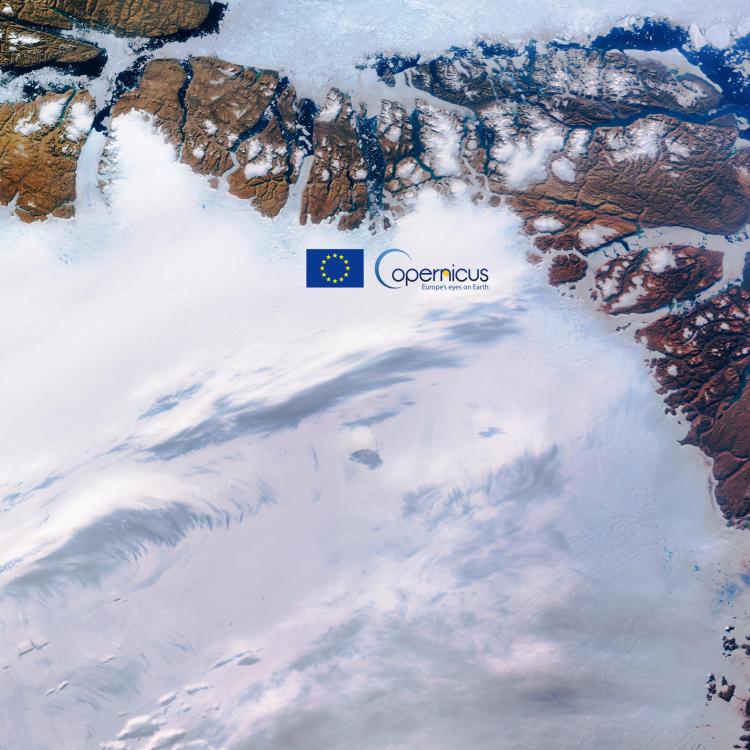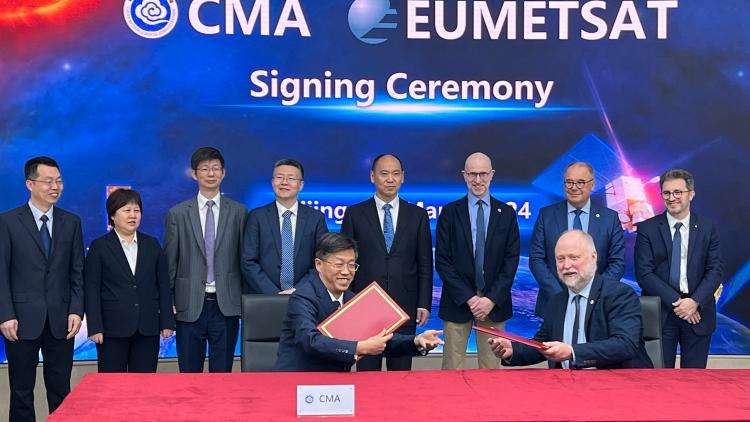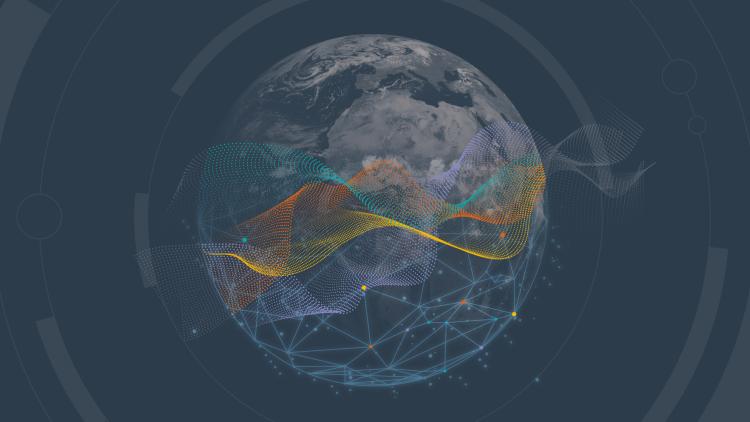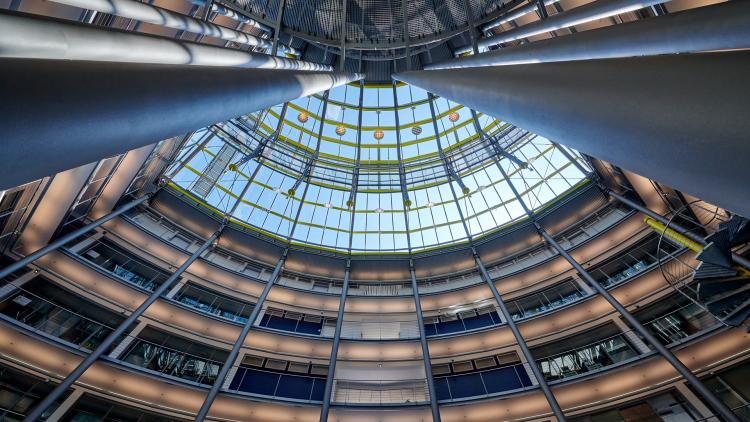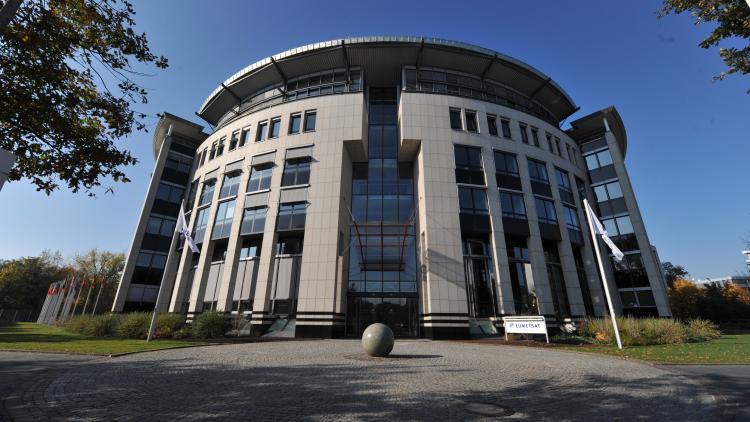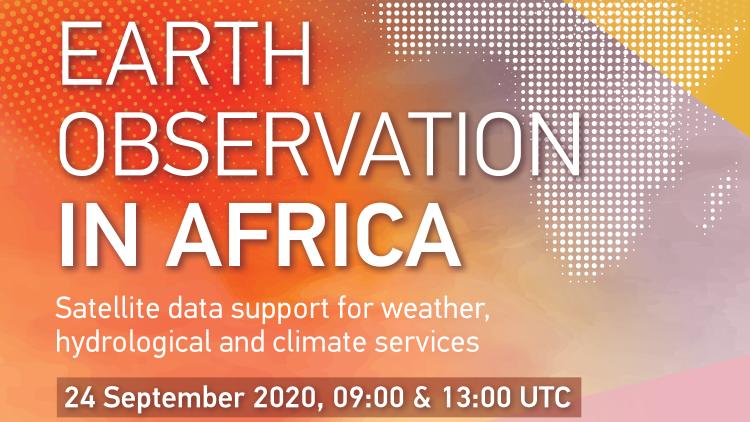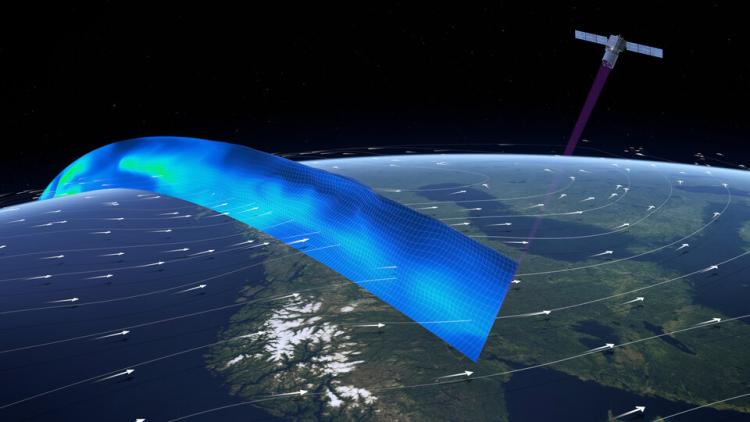03 April 2025
09 April 2020
As a partner of the space strategy for Europe, EUMETSAT supports European Union policies such as its “Green Deal”, which is the EU’s strategy to reach its goal of climate neutrality by 2050, and the digital strategy, which aims to ensure digital transformation works for people and businesses. The European Union entrusts EUMETSAT with key roles in the Copernicus component of its space programme and the Destination Earth initiative, which is creating digital “twins” of our planet. EUMETSAT also supports EU international partnerships, research and environmental policies.
The European Commission is divided into departments called directorates-general and is engaged in a range of space-related activities, including Galileo, the Copernicus programme, Destination Earth, satellite telecommunications and space research.
EUMETSAT works closely with European Commission directorates-general, as shown below.

Directorate-General for Defence Industry and Space
The Directorate-General for Defence Industry and Space (DG DEFIS) develops and carries out the commission’s policies via large-scale programmes: Copernicus, EGNOS, IRIS2 and Galileo, as well as research programmes to spur technological innovation and economic growth.
The European Union has entrusted EUMETSAT with exploiting the Copernicus programme’s Sentinel missions dedicated to the monitoring of atmosphere, ocean and climate. They are the Copernicus Sentinel-3, -4, -5, -6 and CO2M missions.
Our teams are preparing for the exploitation of part of the Copernicus Polar Ice and Snow Topography Altimeter (CRISTAL) mission and the Copernicus Imaging Microwave Radiometer (CIMR) mission.
EUMETSAT carries out these tasks in close cooperation with ESA.
EUMETSAT operates the Sentinel-3 and -6 satellites and processes and disseminates their data. Access to the data is provided online. Copernicus Sentinel-4 and -5 are instruments that will be flown on EUMETSAT’s Meteosat Third Generation and EUMETSAT Polar System – Second Generation spacecraft respectively.
More information on Copernicus is available here.
Directorate-General for Communications Networks, Content and Technology
The Directorate‑General for Communications Networks, Content and Technology (DG CONNECT) develops and carries out the Commission's policies relating to digital economy and society and research and innovation.
One of DG CONNECT’S flagship initiatives is Destination Earth (DestinE), which involves building virtual replicas of our planet. The ultimate aim is to allow greater insight into weather and climate phenomena and their impacts on society.
EUMETSAT, along with the European Space Agency (ESA) and the European Centre for Medium-Range Weather Forecasts (ECMWF), was selected by the European Commission to undertake work on the first stage of the initiative.
EUMETSAT has responsibility for the multi-cloud data lake underpinning DestinE, including its design, establishment and testing, as well as its operations, and the provision of an online inventory.
ESA and the ECMWF are responsible for DestinE’s core service platform and the digital twins driving the weather and climate modelling respectively.
For more information about DestinE, see the European Commission’s website.
For more information about DG CONNECT, visit its website.
Directorate-General for International Partnerships
The Directorate-General for International Partnerships (DG INTPA) is responsible for formulating the EU’s international partnership and development policy.
EUMETSAT supports projects financed by DG INTPA, including:
- Preparation for Use of MSG in Africa (PUMA)
- African Monitoring of the Environment for Sustainable Development (AMESD)
- Monitoring for Environment and Security in Africa (MESA)
- Global Monitoring for Environment and Security (GMES and Africa)
- Satellite and Weather Information for Disaster Resilience in Africa (SAWIDRA)
- Regional African Retransmission Service (RARS)
DG INTPA is also working to facilitate the uptake of MTG data in Africa, through the development of an African Meteorological Satellite Application Facility (AMSAF).
As the organisation responsible for Europe’s operational meteorological satellites, EUMETSAT cooperates closely with DG INTPA and plays a key role in those projects.
For more information on DG INTPA, please visit its website.
Directorate-General for Research and Innovation
The Directorate-General for Research and Innovation (DG RTD) is responsible for European Union policy on research, science and innovation, to help create growth and jobs and tackle societal challenges.
DG RTD funds research and innovation programmes through Horizon Europe.
EUMETSAT worked with DG RTD to ensure the full exploitation of Meteosat Third Generation (MTG) and EUMETSAT Polar System – Second Generation (EPS-SG) data. A call was issued in December 2022 under the Horizon Europe work programme for 2023-2024. This call will enhance the development of new environmental information based on MTG and EPS-SG observations.
DG RTD is also responsible for the European Commission’s contribution to the intergovernmental Group on Earth Observations (GEO) initiative and to its secretariat.
Joint Research Centre
The Joint Research Centre (JRC) is the European Commission’s in-house science service and employs scientists to carry out research, provide independent advice and support EU policy.
The JRC coordinates the Knowledge Centre for Earth Observations (KCEO) and EUMETSAT contributes to its activities.
The JRC also provides scientific support for sustainable development in African, Caribbean and Pacific (ACP) countries and is a partner in the Monitoring for Environment and Security in Africa (MESA) programme.
EUMETSAT has established a collaboration agreement with the JRC to reinforce the links between the operational capabilities of EUMETSAT and the research capacities of the JRC.
The JRC uses EUMETSAT data and products, including EUMETCast, EUMETSAT’s system for disseminating data and products for use by the ACP group of states.
For more information on the JRC, please visit its website.
Directorate-General for Environment
The Directorate-General for Environment (DG ENV) formulates environmental legislation and ensures that agreed measures are put into practice in European Union (EU) member states.
DG ENV also oversees the activities of the European Environment Agency (EEA). The EEA supports sustainable development and aims to achieve significant and measurable improvements in Europe's environment through the provision of timely, targeted, relevant and reliable information to policy makers and the general public.
Together with EUMETSAT, the European Centre for Medium-Range Weather Forecasts and Mercator Ocean International, the EEA is a partner in the WEkEO Copernicus Data and Information Access Service. WEkEO provides easy and transparent access to data from the Copernicus Sentinel satellites operated by EUMETSAT and ESA, and data from the Copernicus services, and offers hosted processing capabilities close to the data sources.
For more information on DG ENV, please visit the website.
Directorates-General for Climate Action, Mobility and Transport and others
The Directorate-General for Climate Action (DG CLIMA) was established in February 2010 and leads the European Commission’s efforts to fight climate change at a European Union (EU) and international level.
The Directorate-General for Mobility and Transport (DG MOVE) develops and implements EU transport policies.
The Directorate-General for Maritime Affairs and Fisheries (DG MARE) delivers the commission’s political priorities in the areas of fisheries and maritime law and affairs.
Other directorates-general run various activities in fields relevant to some of EUMETSAT’s own activities, including the use of EUMETSAT products for agricultural and rural development, telecommunication technologies for dissemination of data, and international relations. These Directorates-General include:
- the Directorate-General for Energy (DG ENER)
- the Directorate-General for Agriculture and Rural Development (DG AGRI)
- the Directorate-General for European Civil Protection and Humanitarian Aid Operations (DG ECHO)
EUMETSAT routinely monitors policies issued by other directorates-general to assess the extent to which EUMETSAT satellite data and products could contribute. EUMETSAT regularly participates in consultation processes initiated by the commission in areas relevant to EUMETSAT’s mandate.
